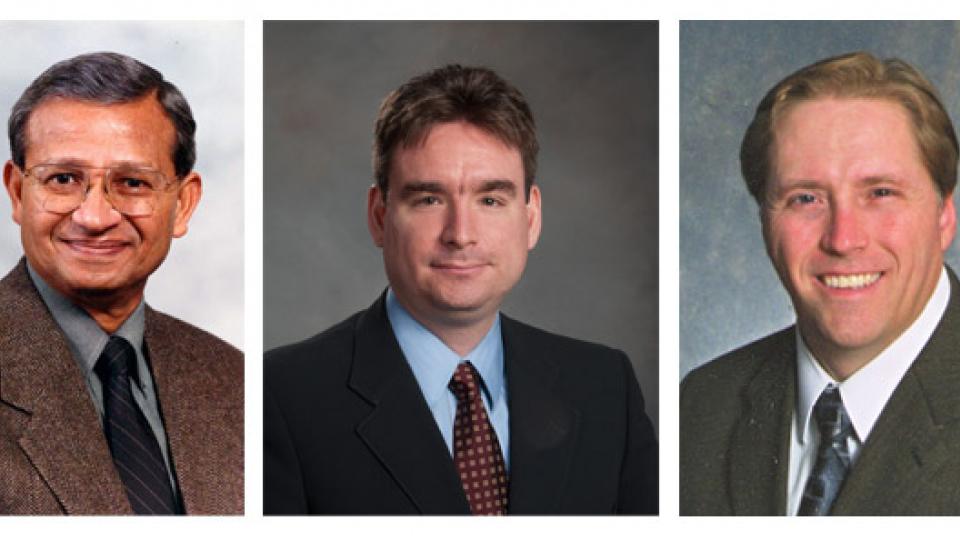
Three UNL faculty members were recently named among the top 50 researchers in their respective fields.
Shashi Verma, Emeritus Charles Bessey Professor of Natural Resources; Andrew Suyker, research professor of micrometeorology; and Mehmet Vuran, associate professor of computer science and engineering, were named to the World's Most Influential Scientific Minds 2014 by Thomson Reuters.
The World's Most Influential Scientific Minds was compiled by Thomson Reuters by collecting citation data from the last 11 years and recognizes researchers who have published the greatest number of highly cited papers during 2012-2013. Thomson Reuters is a leading authority in evaluating journals on impact and citations.
"These individuals are influencing the future direction of their fields, and of the world," the report says. "It is precisely this type of recognition, recognition by peers, in the form of citations, that makes their status meaningful."
The list is broken into 21 disciplines with 50 top researchers in each area.
Verma was recognized for his work in agricultural sciences. His research focuses on atmospheric trace gas dynamics, carbon sequestration and micrometeorology and their effects on global climate change. Most recently, he has been leading an interdisciplinary team of 11 faculty members examining carbon sequestration in agricultural ecosystems. He is a fellow of the American Society of Agronomy and earned the American Meteorological Society's Outstanding Achievement in Biometeorology award in 2006. Shashi also serves on Nebraska's Carbon Sequestration Advisory Committee.
Suyker was also included on the list for his contributions in agricultural sciences. His expertise and research interests are exchanges of carbon dioxide and water vapor in agricultural and natural ecosystems, which advances scientists' knowledge of global climate change. Suyker's research is part of the Carbon Sequestration Program at the Agricultural Research and Development Center in Mead. Suyker is on the board of editors for the journal, Agricultural and Forest Meteorology and is a member of Nebraska’s Carbon Sequestration Advisory Committee.
Vuran was acknowledged for his research in computer science, which focuses on wireless networks, most recently delving into the development of a type of underground wireless sensor networks that could revolutionize agricultural soil data collection and cognitive radio networks to shape how American households will access low-cost internet in the near future. Vuran is completing a National Science Foundation CAREER Award and has been an associate editor of three scientific publications, IEEE Transactions on Wireless Communications, Computer Networks Journal, and IEEE Internet of Things Journal.
The full list is available at http://go.unl.edu/satw.
— Deann Gayman, University Communications